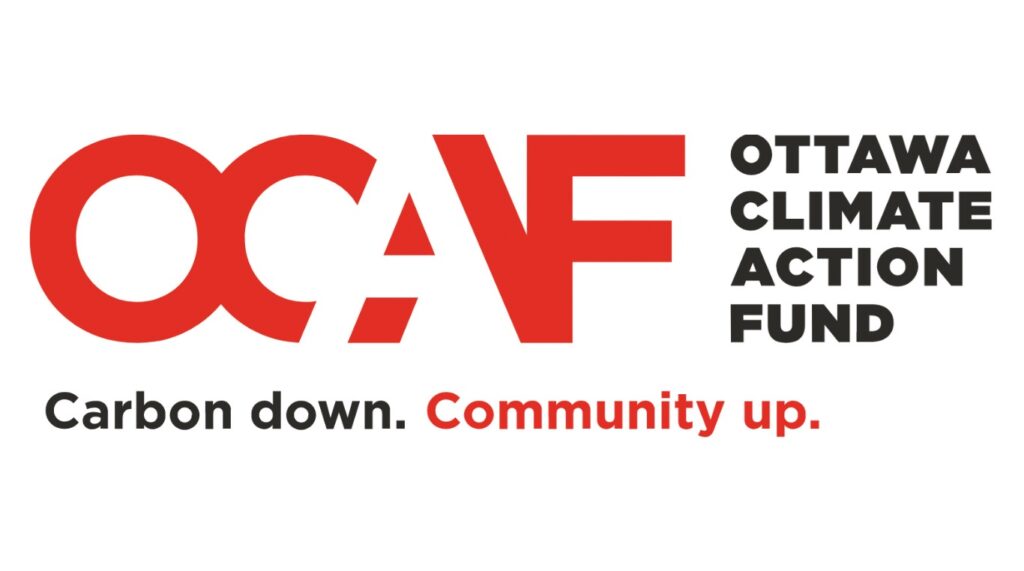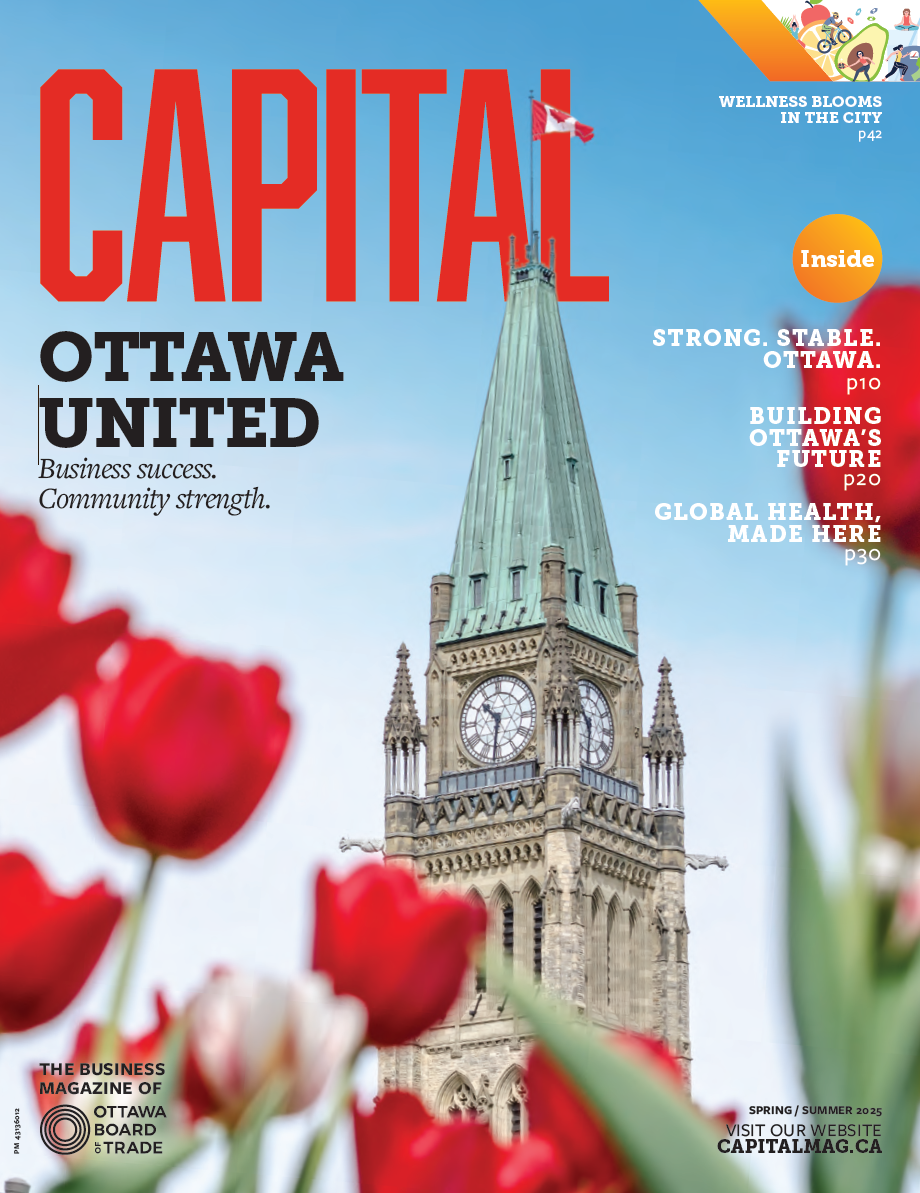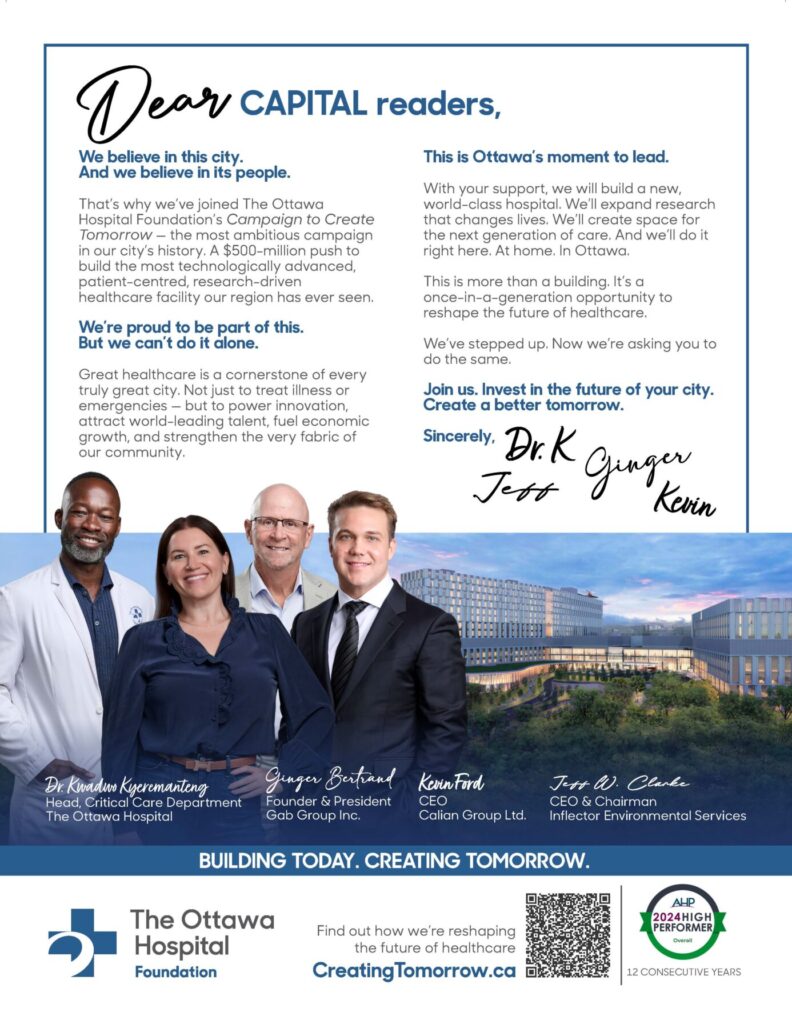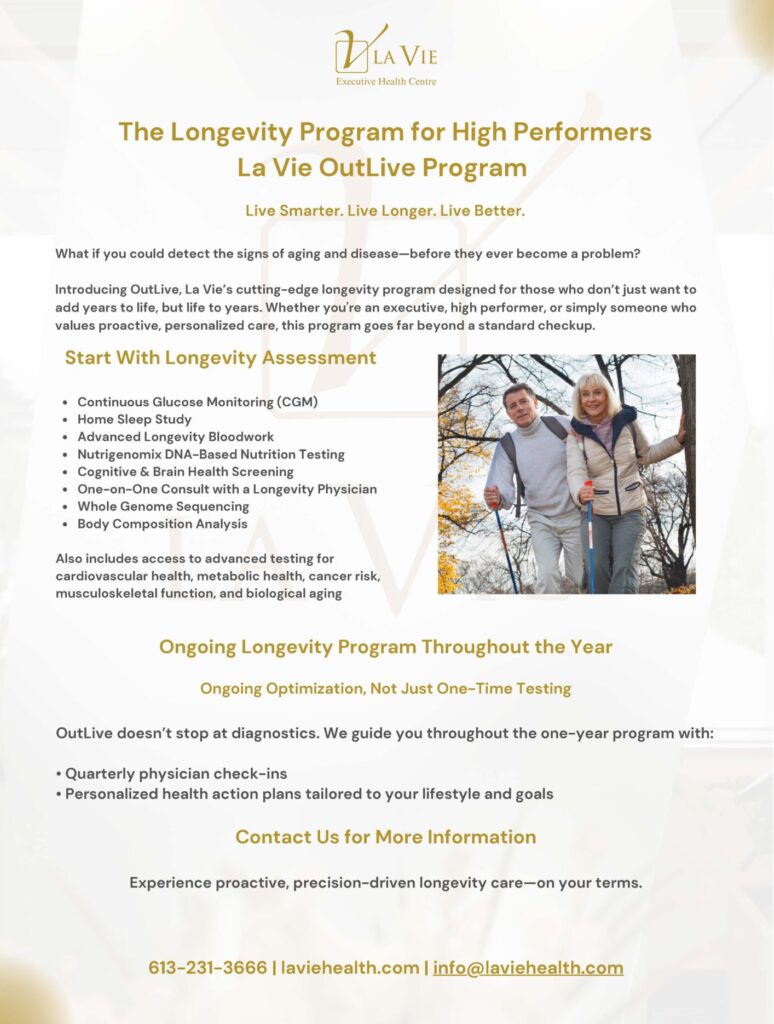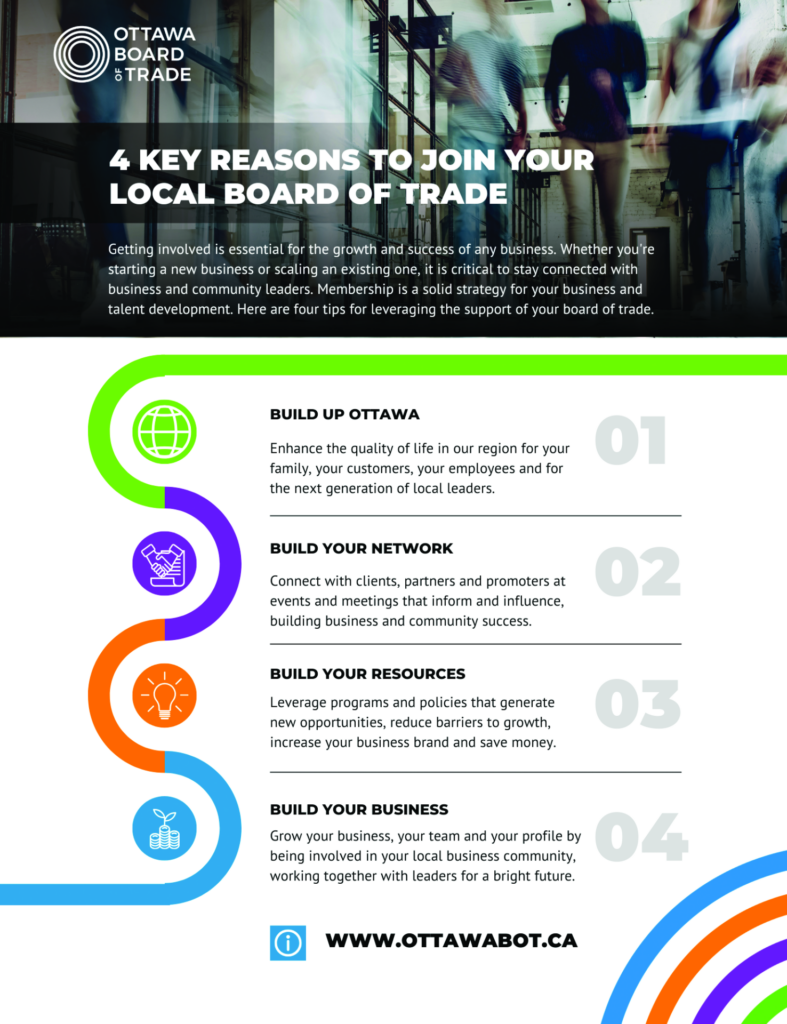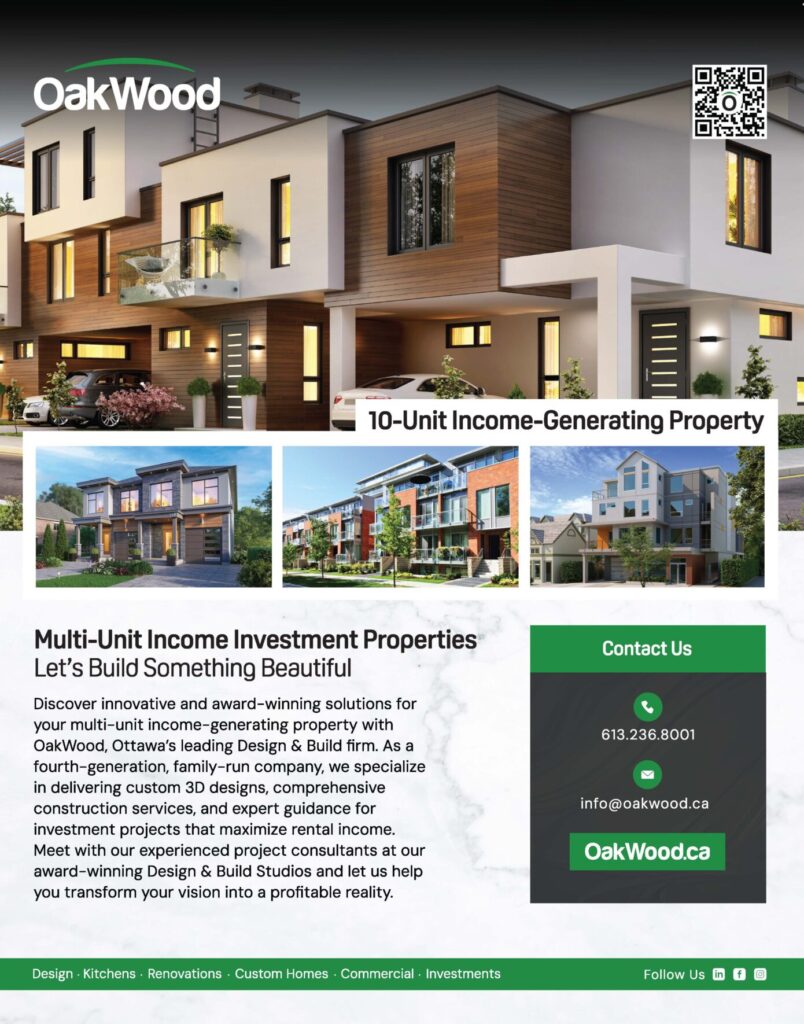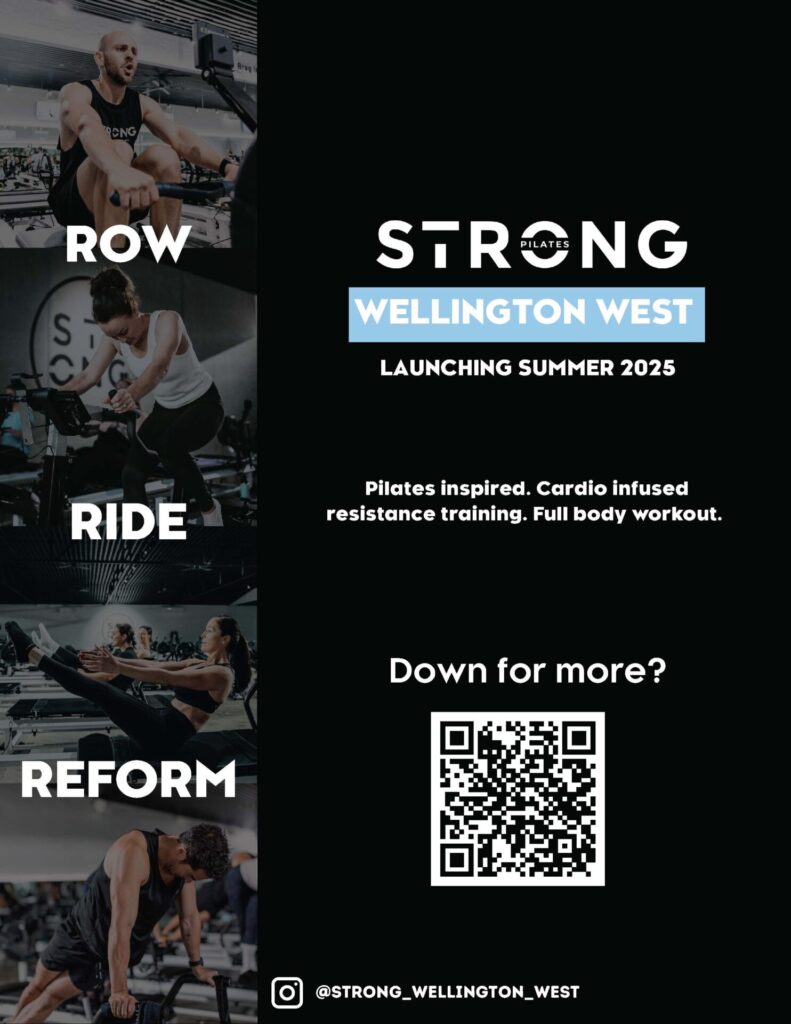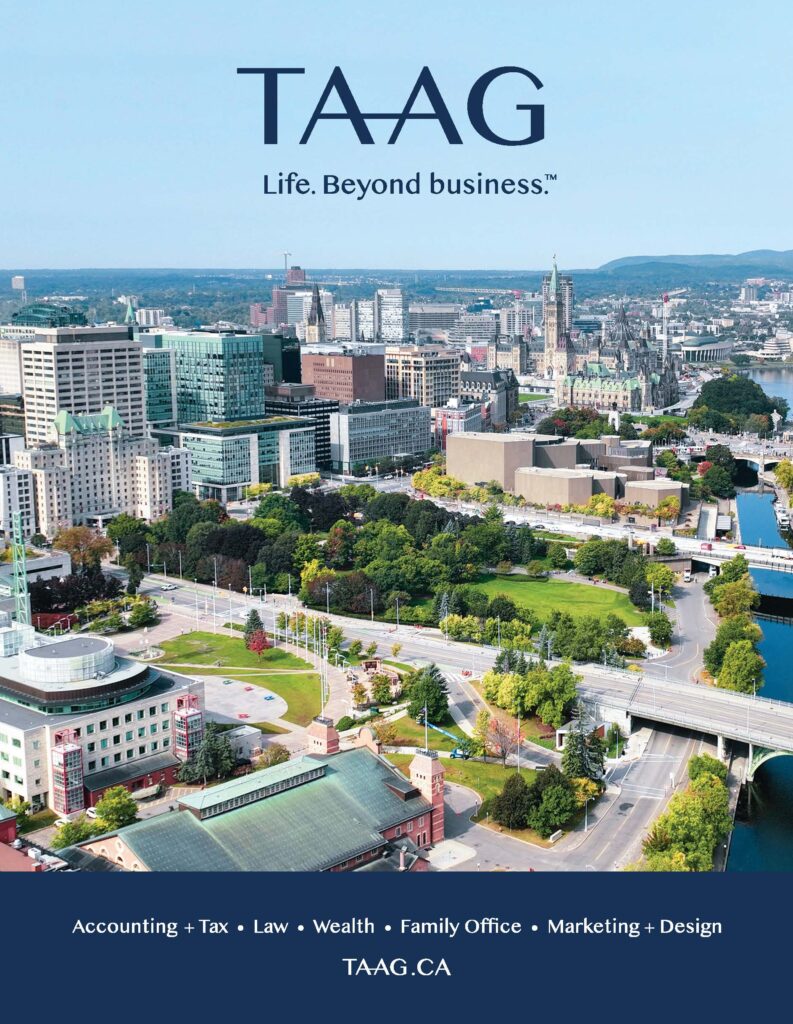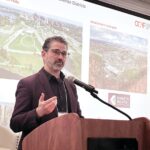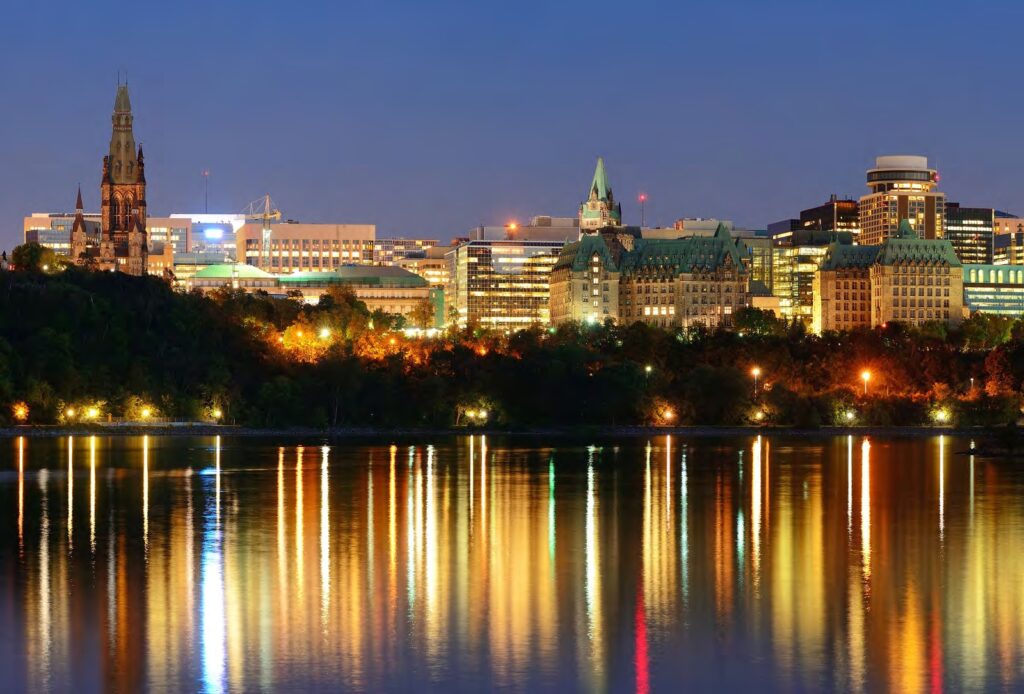PREPARING TO PROSPER: Business, Community Leaders Build Climate Solutions, Affordable Housing into Ottawa’s Economic Future
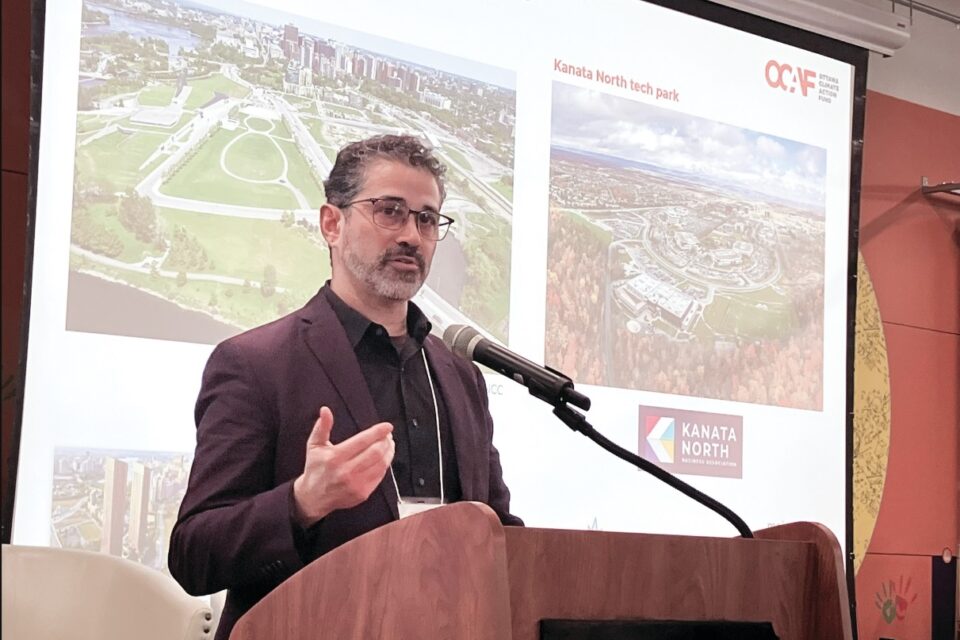
SOME OF OTTAWA’S top business leaders and innovators began plotting a course to a prosperous, low carbon future at the Ottawa Climate-Economy Opportunities Summit, hosted by the Ottawa Climate Action Fund (OCAF).
Discussions during the full-day event at Bayview Yards on October 9 started out with the city’s top economic priorities— downtown revitalization, affordable housing, 21st century jobs, and a growing, thriving tech sector. Then participants dug into the practical, affordable climate solutions that can deliver on those local priorities faster and better.
The Summit began with a shared understanding: that the best way to solve the climate and housing crises in Ottawa is to link and solve them together. And that we’ll see tremendous economic opportunities when we pick up the pace on both—for Ottawa businesses, investors, and residents.
Through that lens, the purpose of the Summit was to prepare for the city to prosper by connecting the project developers, investors, low-carbon opportunities, and social capital that will drive Carbon Down and Community Up.
Five Action Opportunities
OCAF began work on the Summit with a clear directive: the event would only be worth holding if it delivered tangible action after all the conversations and preparations had run their course. From that moment, the search was on for a set of ambitious but achievable opportunities that would:
- Drive down greenhouse gas emissions
- Expand the local supply of affordable housing
- Be scalable beyond the initial demonstration projects
- Be quick and practical to implement.
OCAF knew the Action Opportunities would only win broad support if the ideas came from the people, companies, and organizations that would implement them. So our job was to convene those players, listen carefully to what they came up with, support the process, and keep the discussion pointed toward action and results.
So OCAF convened about three dozen local business, finance, and community leaders to develop the five Action Opportunities that were starting points for discussion at the Summit:
1. Public Land for New Housing: Identifying parcels of surplus land that can be deployed quickly to deliver more affordable, low carbon/net-zero new housing
2. Reno-Protection: Public-private collaboration to acquire older apartment buildings for deep energy retrofits while permanently protecting their affordability
3. Gentle Density Accelerator: Discovering how to house more people on under-utilized residential lots while tackling neighbourhoods’ carbon footprint
4. Energy Resilience Districts: Looking beyond the building at how technology can deliver deep energy efficiency, onsite renewable power, energy storage, and district energy solutions in new developments
5. Ottawa’s Green Pipeline: Bringing together the investment opportunities, investors, finance mechanisms, and matchmaking services to accelerate delivery of low-carbon, more affordable housing supply.
Each of these ideas points to a massive opportunity for business development, jobs, and wider cooperation—to reduce carbon pollution, increase the supply of affordable housing to attract and retain the workforce Ottawa needs, and help our businesses and residents prepare for the local impacts of climate change.

Business Leaders
During the Summit, several dozen of our community’s leading doers and thinkers spent most of their day drilling down into the specifics of each Action Opportunity. Participants also received a powerful vote of confidence from a panel of four senior economic leaders representing the Ottawa Board of Trade, the City of Ottawa, the Kanata North Business Association (KNBA), and Invest Ottawa.
“At the Ottawa Board of Trade, we know that city building must be sustainable, affordable, and inclusive,” said President and CEO Sueling Ching. “The way forward is through radical collaboration amongst the private, public, and non-profit sectors. Events like the Ottawa Climate-Economy Opportunities Summit provide an opportunity to actively take part in this collaboration and to use the outcomes of the day to build up Ottawa.”
“The City of Ottawa recognizes Kanata North as a key economic generator and has designated the Kanata North Research Park as a Special Economic District,” said KNBA Executive Director Kelly Daize. “This provides the opportunity to rethink how we solve real-world problems with real-world impacts. That’s why we’re collaborating with OCAF to explore the opportunity for the park to be a Clean Energy Resilience District where technology can deliver deep energy efficiency, onsite renewable power, and energy storage.”
“Ottawa’s cleantech sector is an innovation powerhouse, driving progress towards a sustainable future,” said Invest Ottawa President and CEO Sonya Shorey. “Together, we can harness these strengths to create a stronger, more sustainable economy, community, and world for generations.”
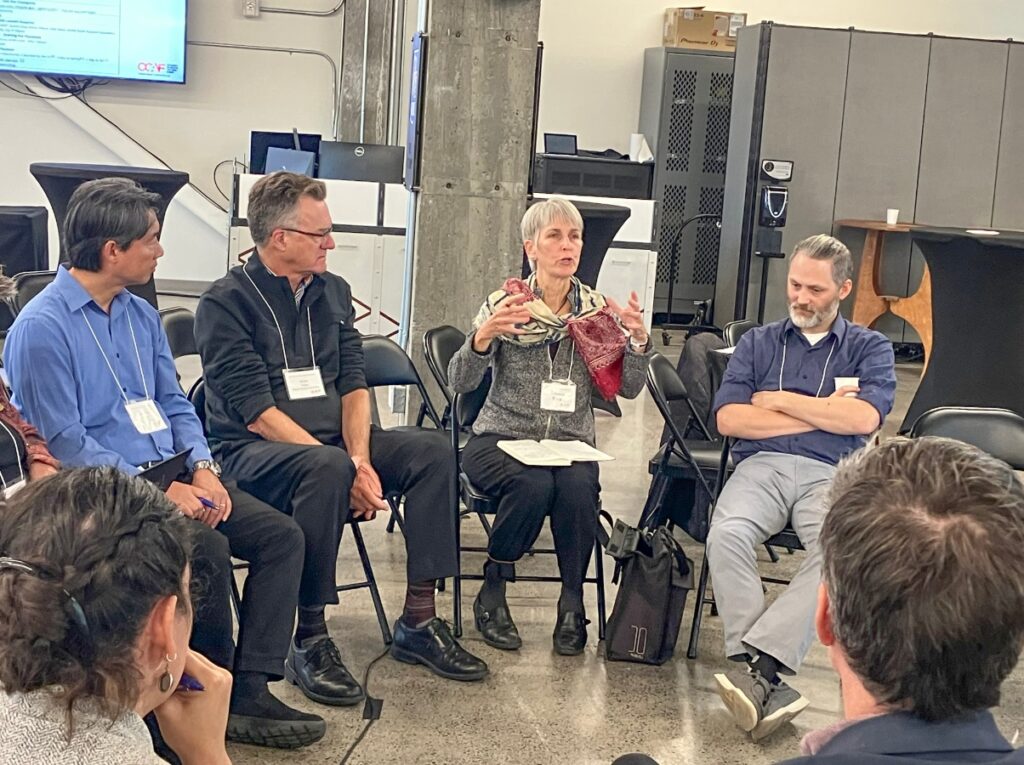
Participants at the Ottawa Climate-Economy Opportunities Summit dig into the nitty gritty details of meeting the city’s top economic development priorities through a climate lens
Now the Hard Work Begins
We’ll know soon enough whether the Ottawa Climate-Economy Opportunities Summit can make good on its promise to follow words with action.
By Spring 2025, participants agreed to assess the feasibility of an energy resilience district in the Kanata North Research Park and map out the opportunity, available resources, and local trades capacity for a gentle density accelerator.
Another team will work with investors, tenants, and communities to develop a business case for acquiring and protecting affordable housing after deep energy retrofits have been done.
As part of the government’s housing strategy, the National Capital Commission is engaging with builders, social housing providers, First Nations, and the wider community to understand how underutilized NCC lands can be identified and more quickly brought to market to deliver much-needed housing, including projects with affordable units and low-carbon/net-zero design.
And OCAF will reprise the convening role that made the Summit possible, bringing together a circle of potential investors and investment aggregators to begin building a bigger, wider pipeline of green projects across the city.
The Summit handed us all a compelling to-do list. At OCAF, we’re thrilled, because we know this is just the end of the beginning. In the months ahead, OCAF will be working with a wide network of partners to make Ottawa a more prosperous community with more affordable, lower-carbon housing—to attract and retain the future workforce, while preparing for the climate change impacts that are already under way and increasing.
